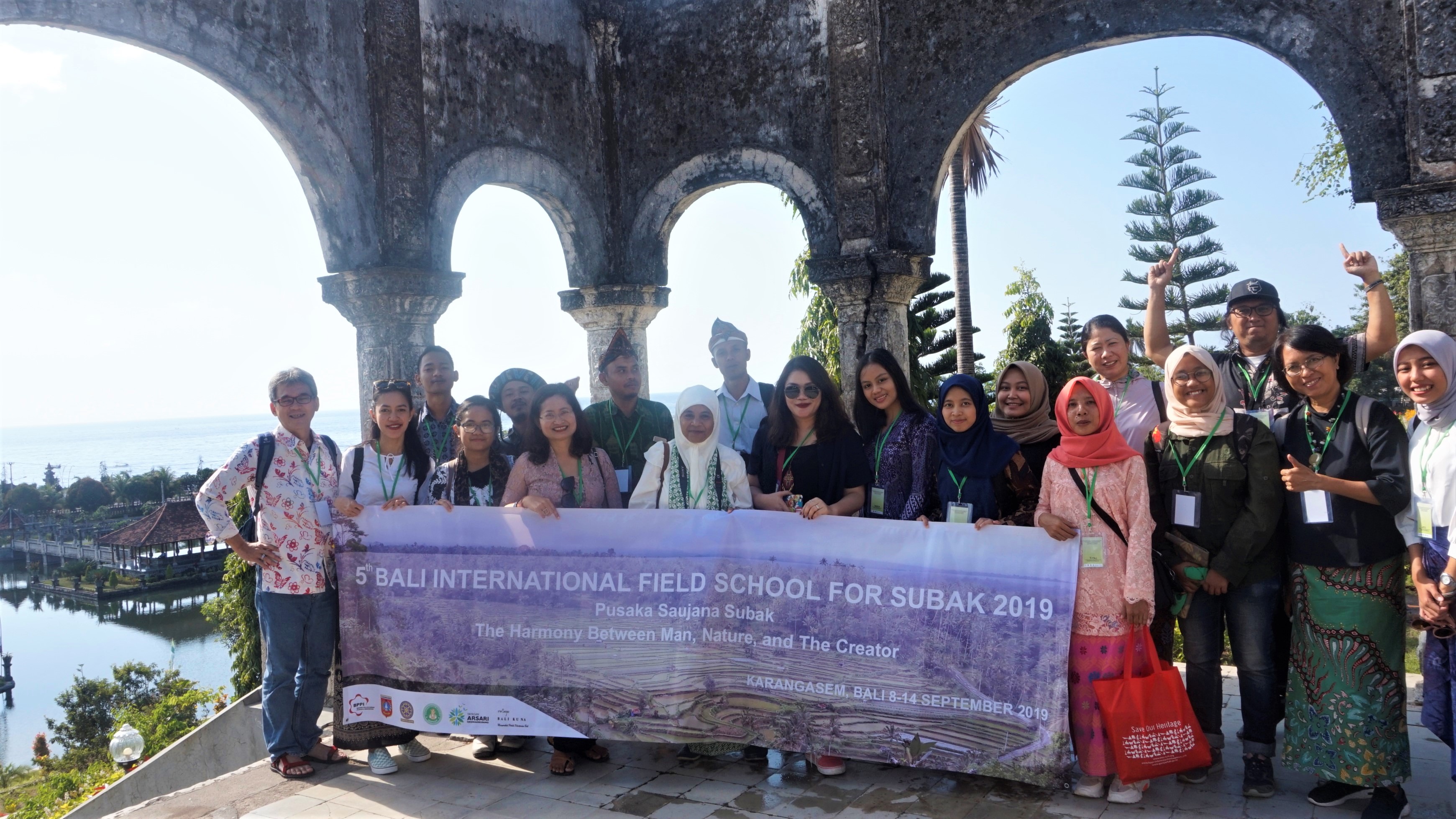Frequently involved in heritage conservation efforts through both Arsari Djojohadikusumo Foundation (YAD) and Indonesian Heritage Trust (BPPI), Hashim Djojohadikusumo is a notable figure in the world of conservation. His passion in the field is further showcased by understanding that environment is another important pillar of conservation, a call which Catrini Pratihari Kubontubuh, Executive Director of YAD and Chairperson of BPPI, addressed during her speech in 2013 at Kyoto University, Japan, concerning Subak.
A traditional social system of Balinese agriculture recognised as a World Heritage by UNESCO, subak has been practiced for over 700 years and has very deep roots to Balinese people on cultural and spiritual level, particularly its emphasis on the balance between people, environment, and the Creator. However, in recent years, Subak has been facing considerable challenges to its sustainability, with threats ranging from rapidly growing tourism to natural disasters.
 In September 2019, the fourth Bali Internship Field School for Subak (BIFSS) will be held again as part of an ongoing project to ensure the awareness and conservation of this important tradition. First initiated by joint efforts of BPPI, Design School – Kyoto University, and Gianyar Regency, BIFSS is a field school where heritage academics and practitioners from various backgrounds gather and conduct immersive field observation on Subak. Hashim Djojohadikusumo has been supportive of the idea, as shown by Rumah Panchoran, his family villa at Nyuh Kuning Village, has been one of the core venues for BIFSS since its inception, and thus become a melting pot of heritage conservation efforts.
In September 2019, the fourth Bali Internship Field School for Subak (BIFSS) will be held again as part of an ongoing project to ensure the awareness and conservation of this important tradition. First initiated by joint efforts of BPPI, Design School – Kyoto University, and Gianyar Regency, BIFSS is a field school where heritage academics and practitioners from various backgrounds gather and conduct immersive field observation on Subak. Hashim Djojohadikusumo has been supportive of the idea, as shown by Rumah Panchoran, his family villa at Nyuh Kuning Village, has been one of the core venues for BIFSS since its inception, and thus become a melting pot of heritage conservation efforts.
First held in 2015 at Gianyar Regency, Bali, and attended by Kyoto University post-graduate students from various disciplines and local Indonesians of various educational and professional backgrounds as participants, BIFSS had seen many developments related to Subak conservation. Gianyar Recommendation on the Sustainability of Subak, which was disseminated at the World Culture Forum at Gianyar on 10 October 2016, proposal for an exhibition design focusing on invoking emotional responses of the visitors for a new Subak Museum in Gianyar in 2017, and dialogue with disaster-stricken farmers and government officials regarding Subak’s sustainability and contingency plans at the time of disaster are among the visible results brought by BIFSS in its four-year course.
In this fifth year, BIFSS will shift its focus to Karangasem Regency, a change to previous years’ Gianyar Regency. This is only fitting as in 2019, Karangasem has been recognized as a member of Organization of World Heritage Cities (OWHC), a world forum comprising of cities where heritage sites in UNESCO World Heritage List are located. It was the fourth city in Indonesia to receive the honor. And Subak as one of the regency’s heritage is one of the reasons that made the acknowledgement possible.

In the future, BIFSS hopes to reach other regencies of Bali, bringing with them awareness of the importance of the conservation of Subak, and landscape heritage in general, and the challenges it is currently facing.
(CPK/WA)

